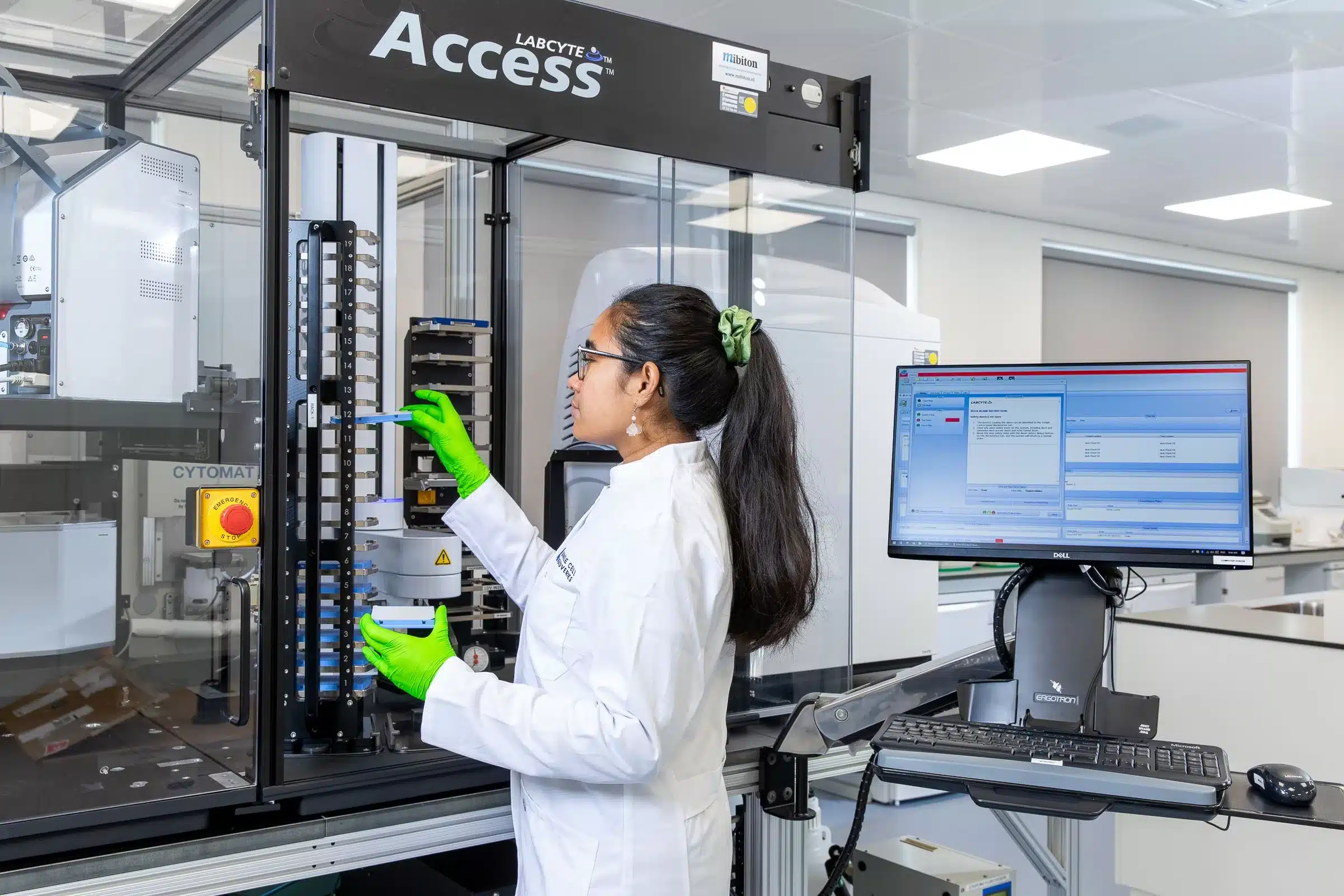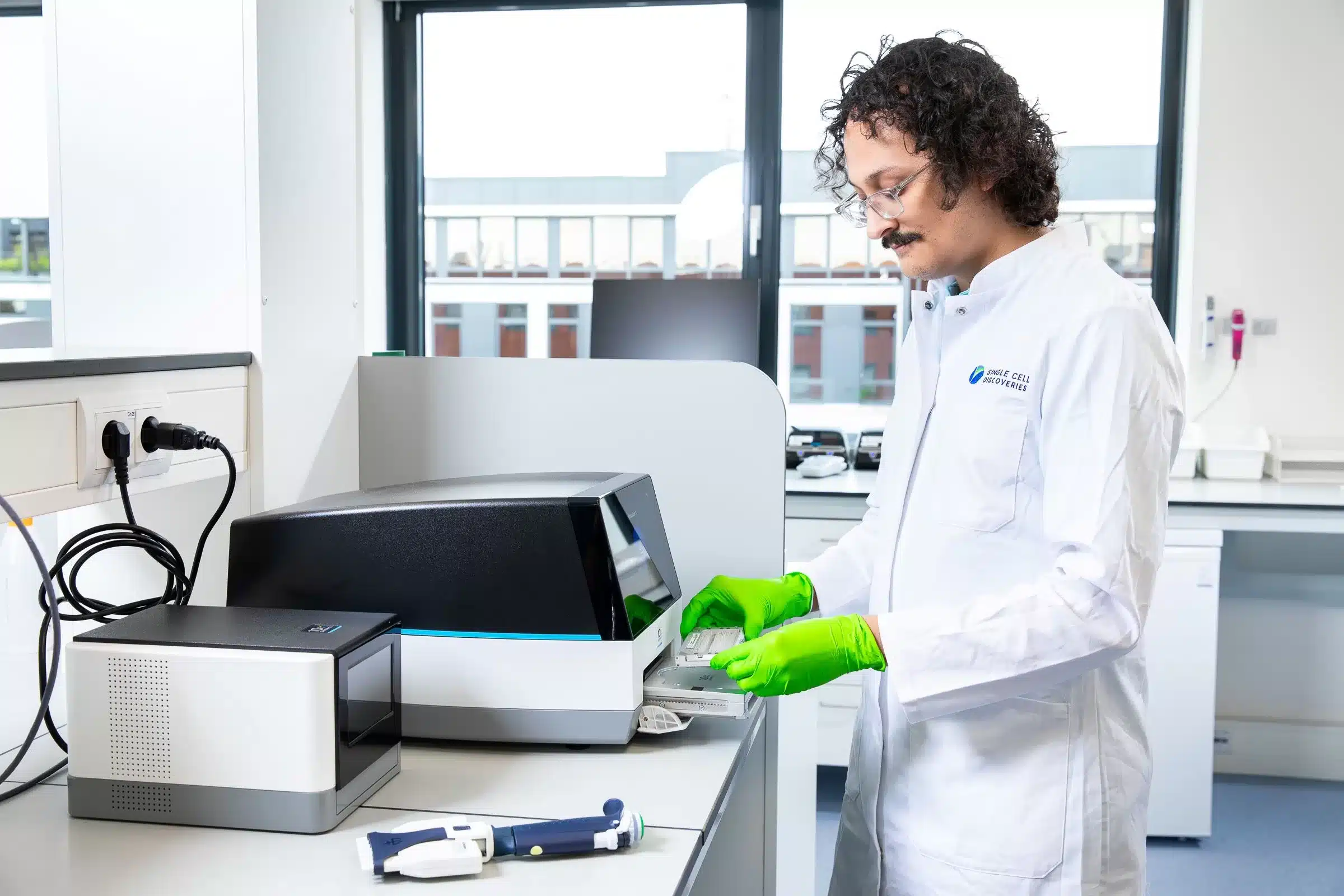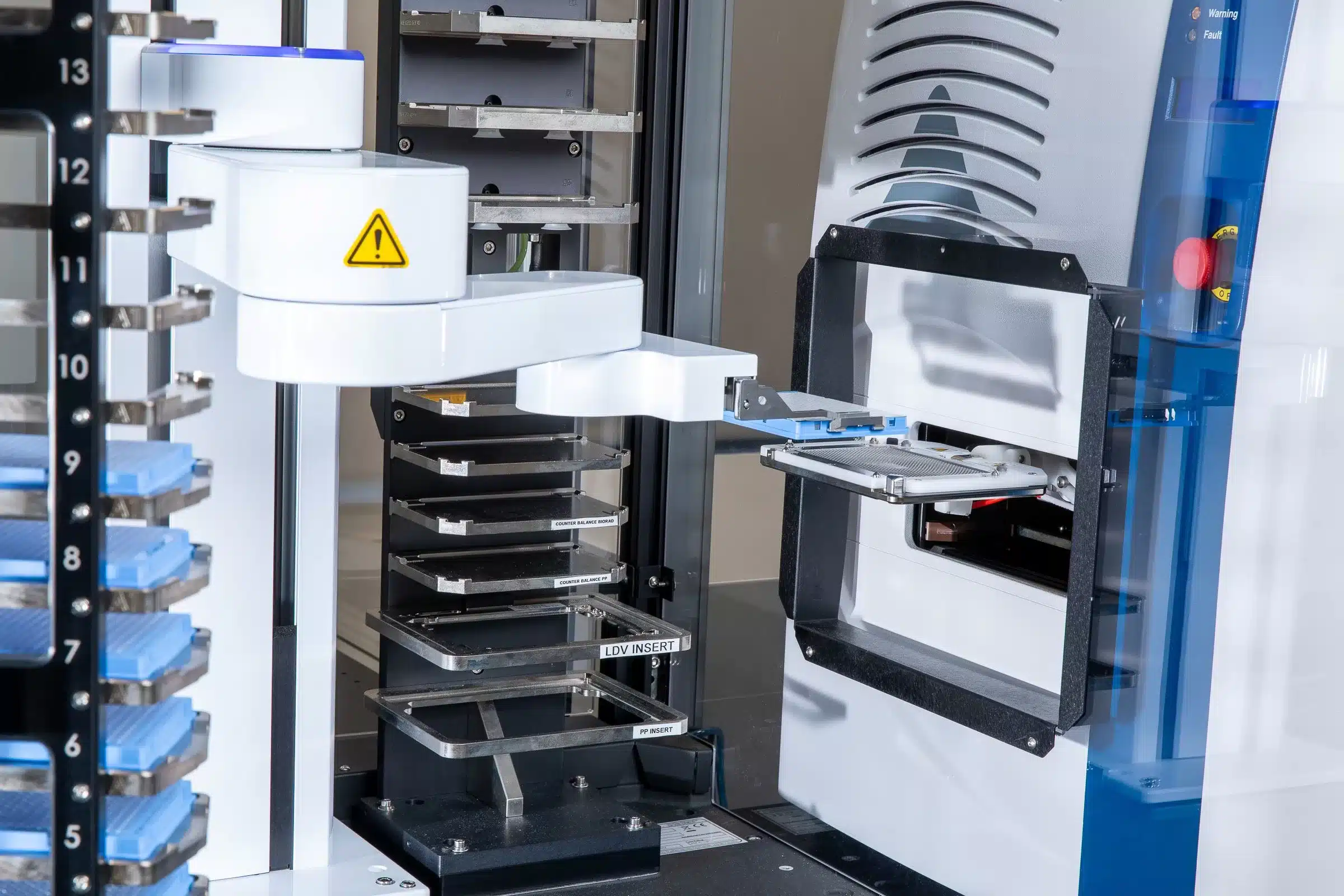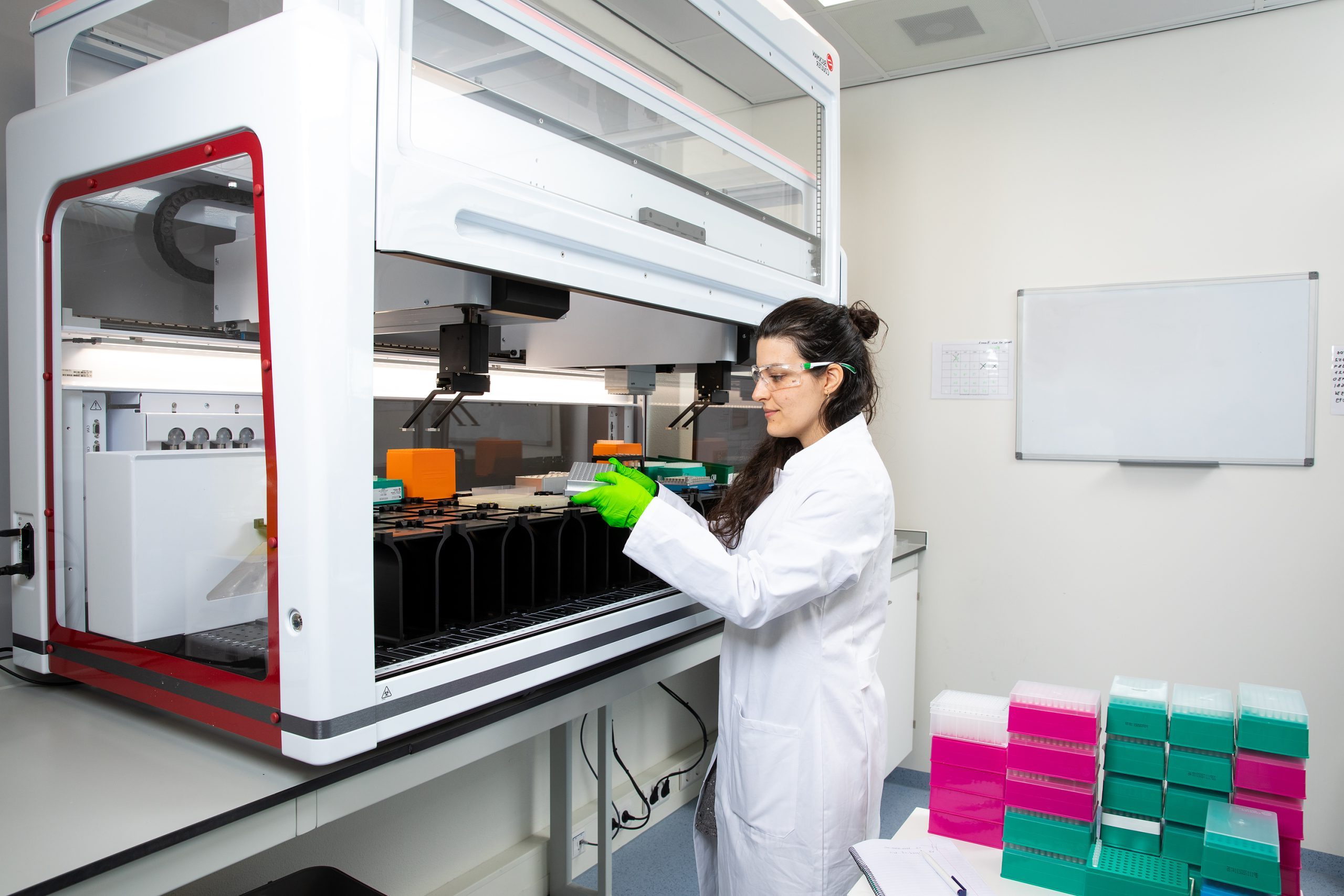Immunology Transform your understanding of the immune system
Single-cell sequencing in immunology can provide an in-depth examination of the immune system and help accelerate vaccine development, immuno-oncology therapeutics, and organ transplantation applications.

Applications
Gaining a deep understanding of the immune system is crucial for advancing vaccine and immuno-oncology therapies, as its heterogeneity and complexity significantly impact infection, autoimmune diseases, and cancer.
Traditional methods like fluorescent microscopy fall short in analyzing the immune system's intricate nature, as they are limited to examining only a few genes. Single-cell sequencing overcomes this constraint, empowering researchers to explore the immune system with unprecedented detail and complexity.
Disentangle the drivers of an immune response
Various conditions like drug treatment, organ transplantation, or other immune triggers will elicit complex responses that can be deconvoluted by combining cell-surface markers and gene expression data. Such information can reveal how each cell type reacts to a particular treatment, accelerating the development process.
Investigate antigen specificity
Understanding antigen specificity is essential for comprehending the adaptive immune response, and single-cell sequencing in immunology enables determining antigen specificity at the individual cell level. Combining gene expression data with antigen specificity allows you to gain insights into the molecular pathways of immune cells.
Study the immune micro-
environment at high resolution
While flow cytometry is a common tool for differentiating immune cells based on their cell surface proteins, it does not consider cells’ intrinsic molecular features. It thus cannot distinguish cells with similar surface markers.
In contrast, single-cell sequencing detects cell-surface-marker mRNA molecules, which enables the identification of rare or novel subpopulations within each specific immune cell type.
Develop immuno-oncology therapeutics
Single-cell sequencing is a useful tool for studying immuno-oncology and can provide useful information on how the immune system interacts with the tumor.
The Single Cell Immune Profiling solution by 10x Genomics is very suitable for studying immuno-oncology. If you want to know more about where the immune cells are located within the tumor, we recommend exploring spatial transcriptomics options.
Our services
We offer single-cell and bulk transcriptomics.
Our R&D team is actively developing novel single-cell sequencing technologies,
multi-omic applications and custom solutions. Our standard services are listed below. We also offer sequencing of Illumina libraries.
Single-cell sequencing
Pooled cells
Case studies

Immune Profiling of atherosclerosis reveals new therapeutic potential
A team of scientists uses 10x Genomics Single Cell Immune Profiling to characterize T cells in the atherosclerotic plaque. Their results redefine atherosclerosis as an autoimmune disease.

Drug Discovery
for Precancerous Liver Disease
Here’s the story of how SORT-seq helped advance a novel drug candidate for liver cancer into clinical trials.

Colorectal Zebrafish Xenograft Model
This research, conducted at the Champalimaud Foundation in Lisbon, is focused on the immune response after implantation of human cancer cells in zebrafish. The cells in the implanted tumors were characterized using SORT-seq. Here, we explain how SORT-seq contributed to this remarkable study.
Recent publications
Brain, Behavior, and Immunity
Neutrophil immune profile guides spinal cord regeneration in zebrafish
Cancer Research Communications
Ewing sarcoma single-cell transcriptome analysis reveals functionally impaired antigen-presenting cells
How can we help?
Want to supercharge your project with single-cell insights?
Connect with our PhD-level scientists to discuss your biological question, timeline, sample types, and other customizations for your single-cell analysis.





